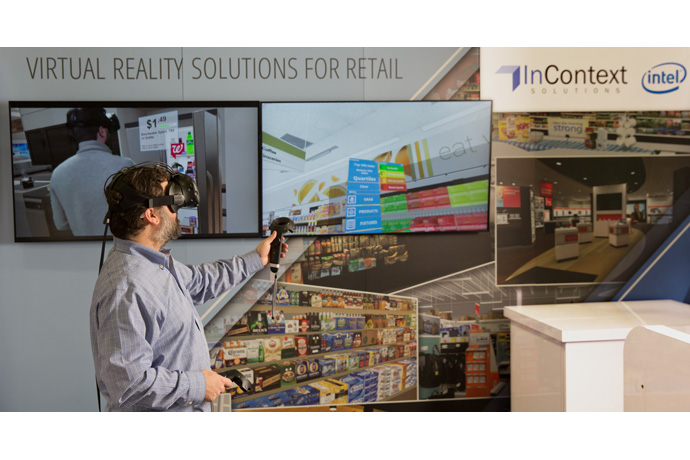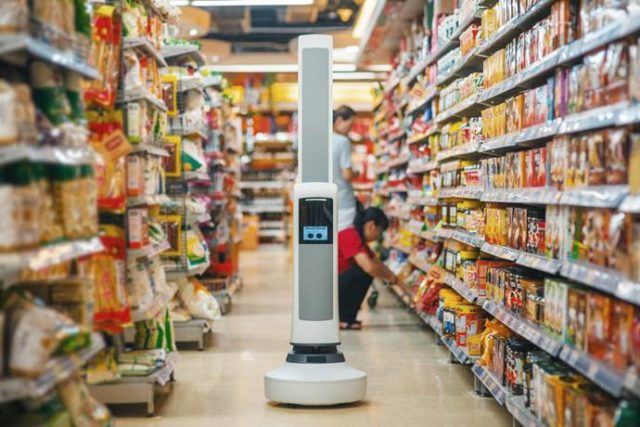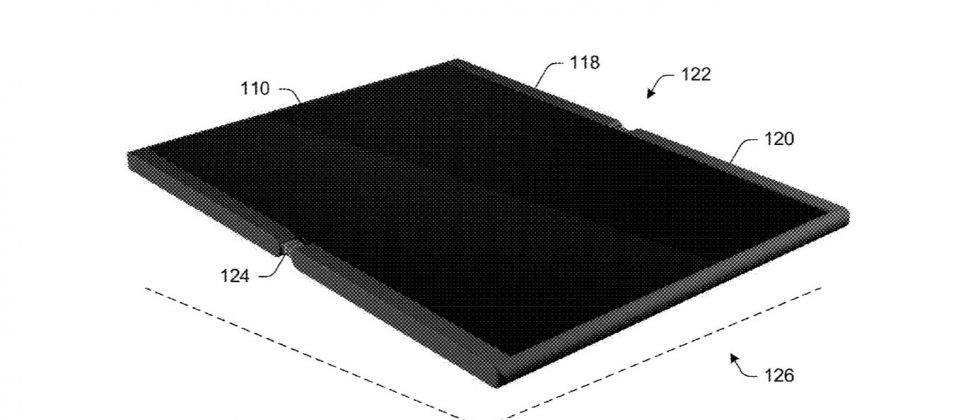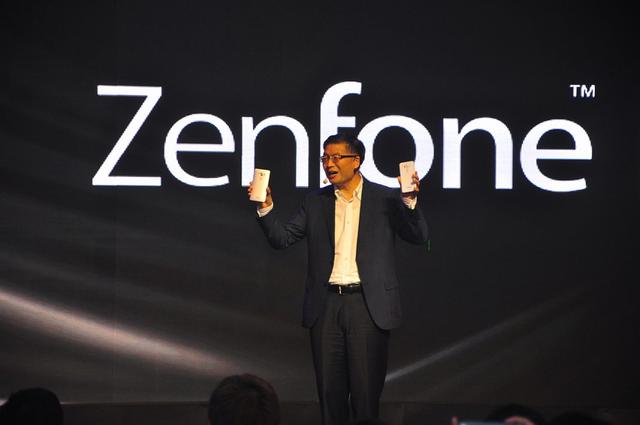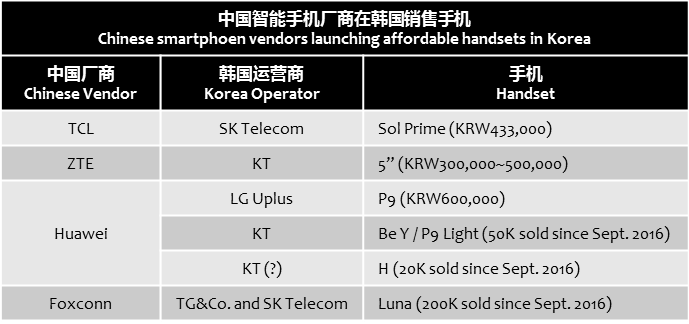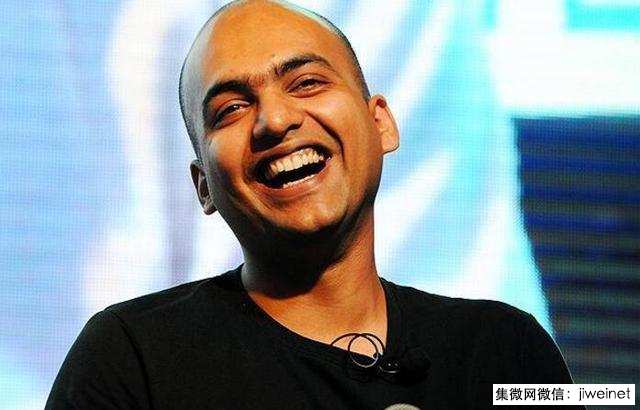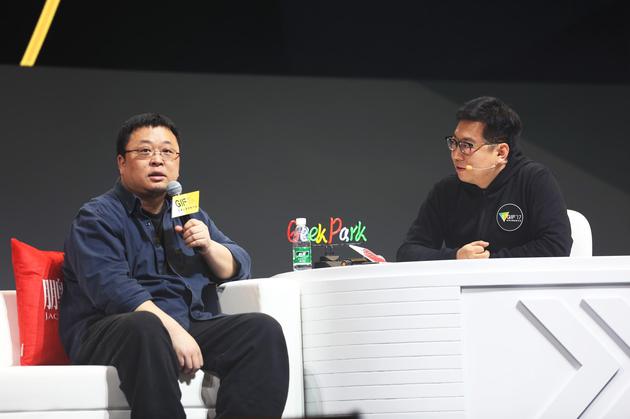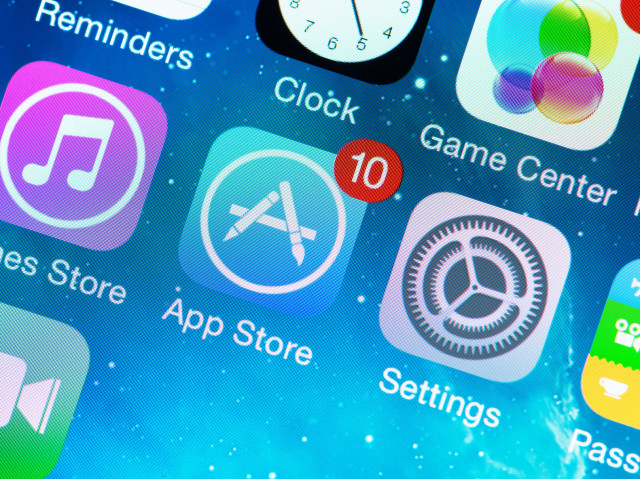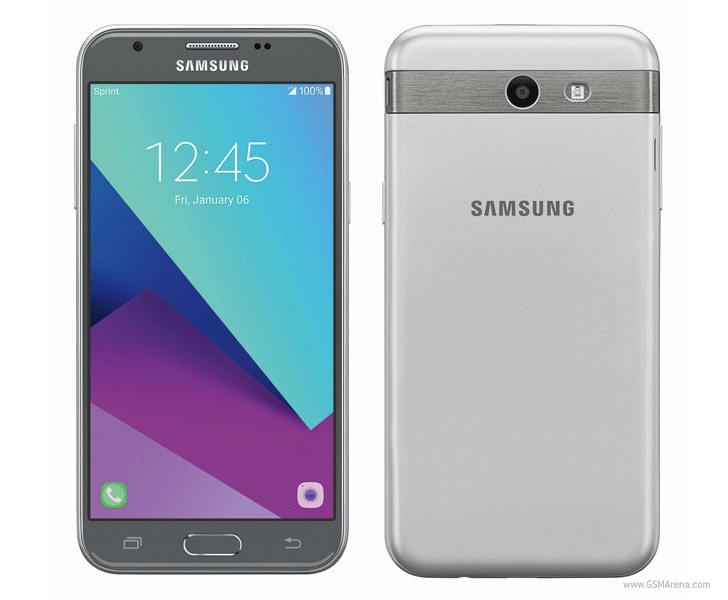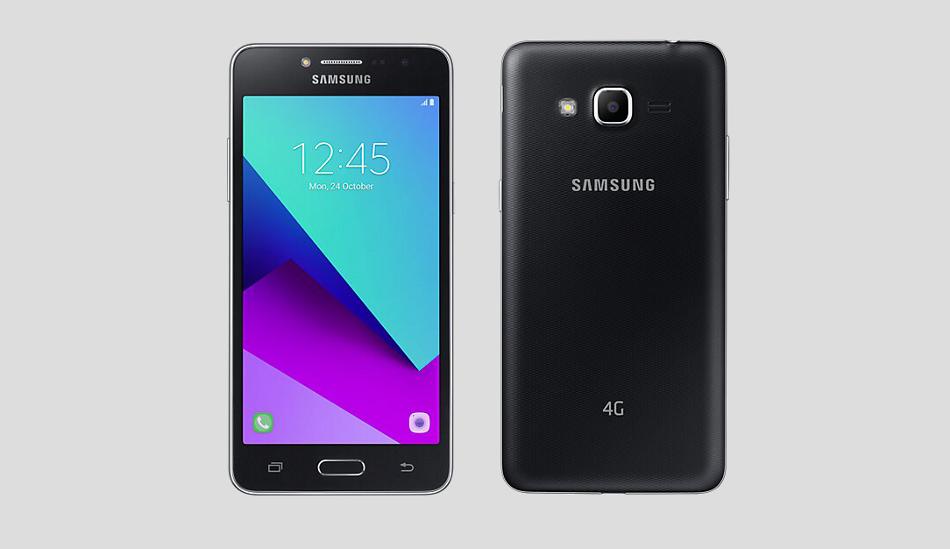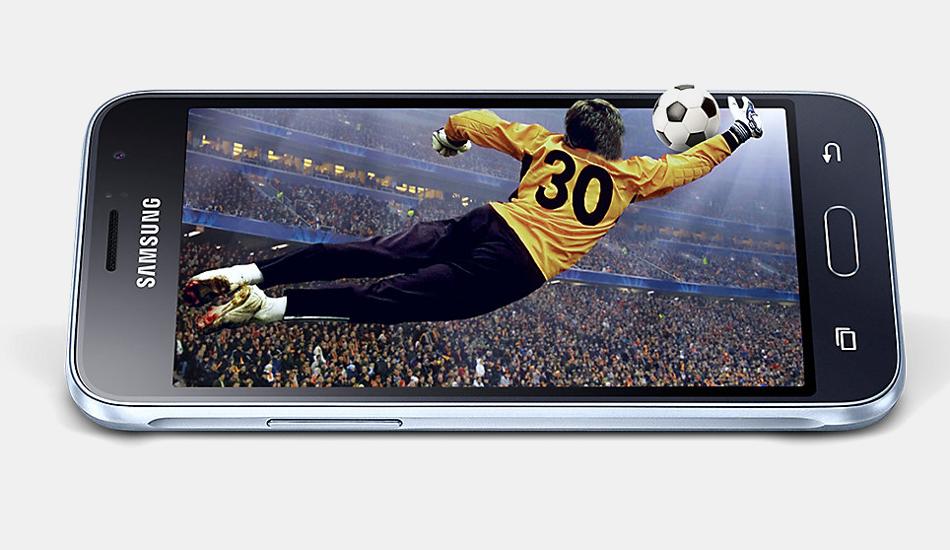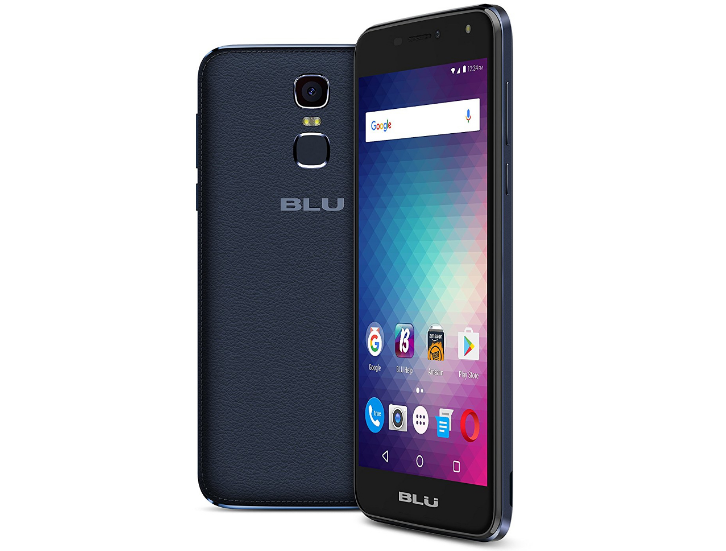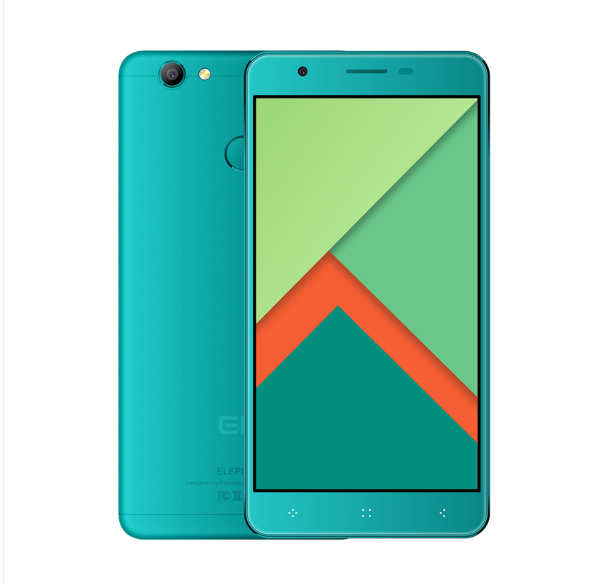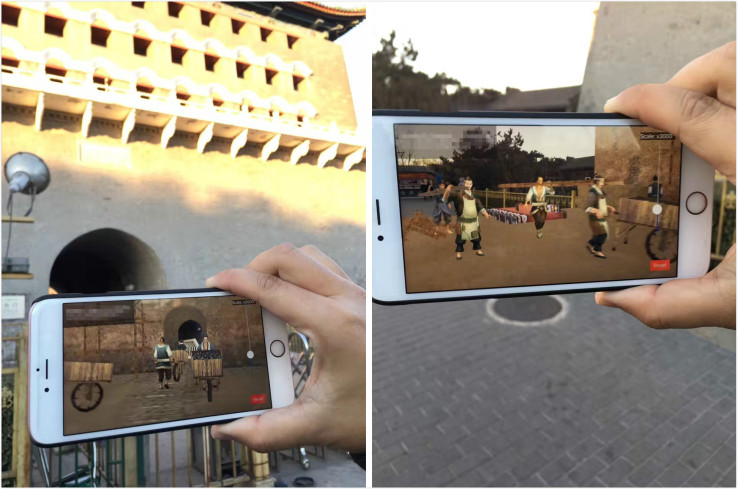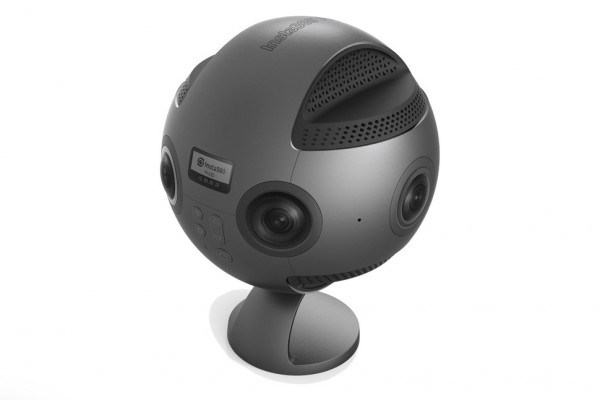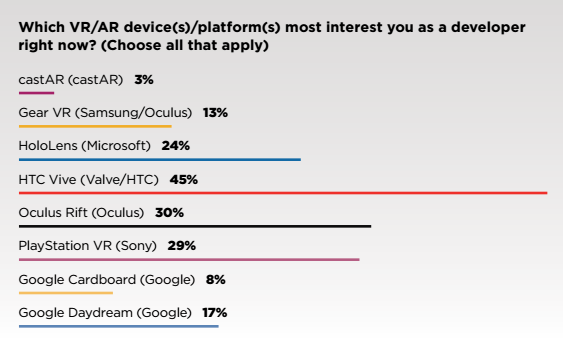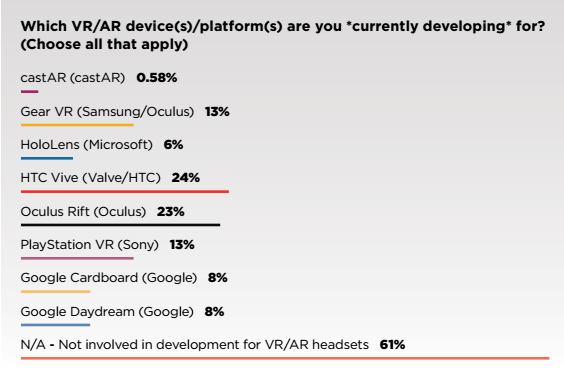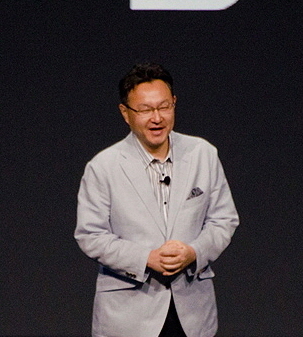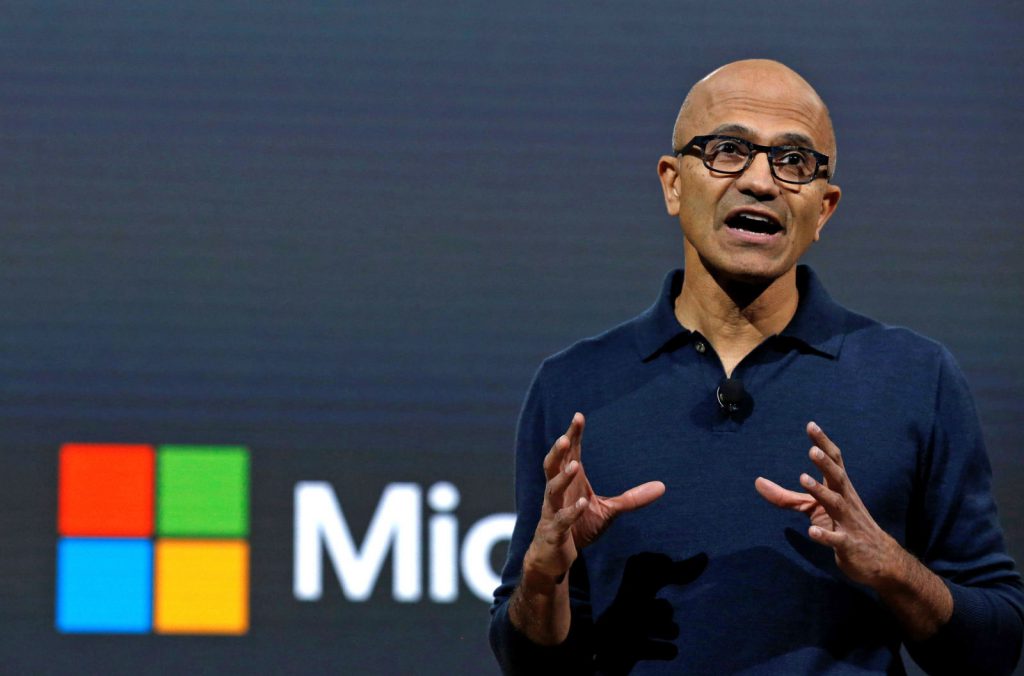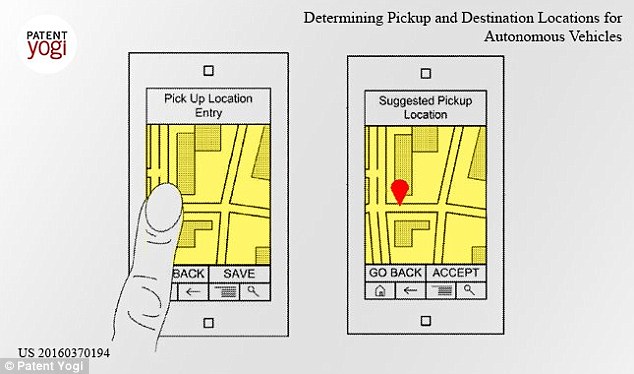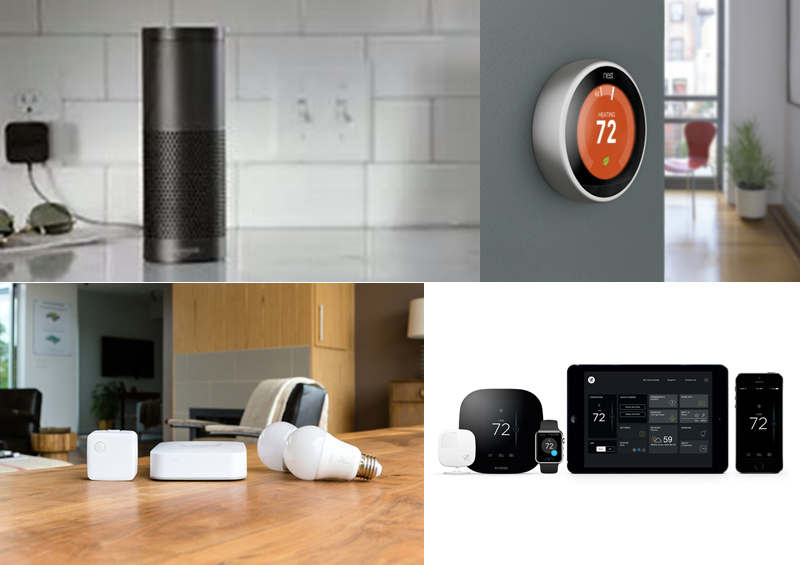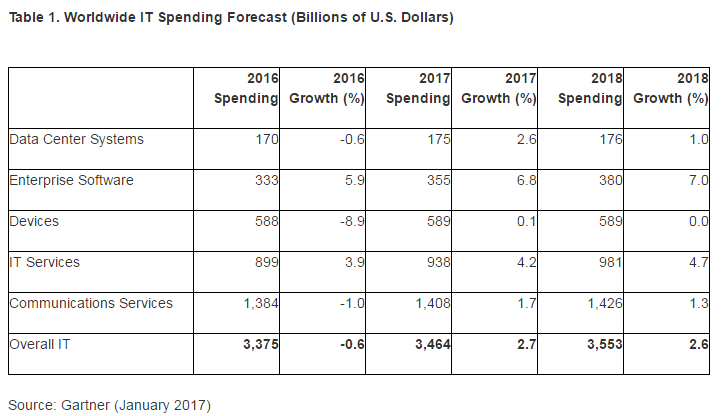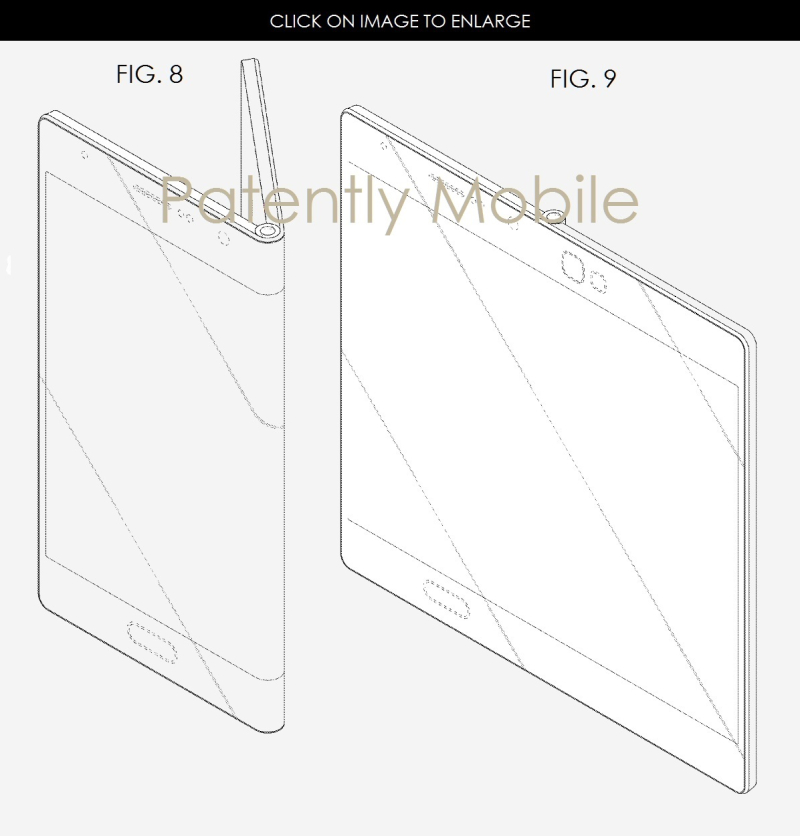
01-17: Asustek Computer aims to ramp up its smartphone shipments to 35~40M units a year; Xiaomi’s 70% sales are from Internet in China; etc.
Chipsets
Intel announced the Intel Responsive Retail Platform, in which the company is expected to invest as much as USD100M towards creating a smarter retail space. It is creating a common set of sensors, software, and other pieces of hardware that will all work together to help speed up the process of inventory tracking, (Ubergizmo, CN Beta, Intel)
Intel demonstrates Simbe Robotics’ Tally, the world’s first robotic autonomous shelf auditing and analytics solution for retail. Tally works in concert with retail associates by arming them with information to ensure the store’s products are always stocked, in the right place and displaying the correct price tag. (Ubergizmo, CN Beta, Intel)
Touch / Display
Samsung fold-out device patent depicts an evidently thin device that, when folded, looks like a regular phone, complete with the home button underneath the display, the earpiece and sensors above, and a rear camera on the other end. (Phone Arena, Patently Mobile, CN Beta)
A patent reveals that Microsoft is experimenting with concept for a future mobile device with flexible hinge and display. The patent details what looks like a large smartphone that can fold over and transform into a tablet form factor. (CN Beta, Google, Kit Guru, The Verge)
FocalTech Systems is expected to enjoy a particularly strong 1Q17, thanks to robust shipments of its single-chip integrated driver controller (IDC) solutions, according to Digitimes. A shortage of LCD panels affected negatively shipments of FocalTech’s IDC solutions in 4Q16, when the company posted disappointing revenues. (China Times, Laoyaoba, EE Focus, Digitimes, press)
Memory
Seagate announced that they will shut down their plant in Suzhou and cut over 2,000 employees. Seagate still has its plant in the nearby city of Wuxi and has increased investment there. Wuxi plant remains vital to the company’s global supply chain. Seagate remains confident and committed to the Chinese market. (CN Beta, ZDNet, NDTV, Xinhuanet, China Tech News)
Sensory
Stanford University has demonstrated that smartwatches can be used to detect the first signs of illness. The team found the devices would record unusually high heart rates, and sometimes higher skin temperatures, up to 3 days before the volunteers had symptoms of a cold or other infection. (Ubergizmo, New Scientist, Sohu)
Smartphones
Asustek Computer aims to ramp up its smartphone shipments to 35~40M units a year to account for 3% of the global shipments in the next 3 years, according to company CEO Jerry Shen. (GSM Arena, Digitimes, press, Gizmo China, Tencent, 163)
Commenting on questions on whether Pegatron Technology will move production to North America, company chairman TH Tung noted that Pegatron currently has several production sites in the US, and the company would be able to expand capacity 3-5 fold if necessary. (Digitimes, press, Tencent, 163)
Chinese smartphone makers are launching a wide range of affordable handsets in Korea under tie-ups with local telecoms. (Chosun, TechNews, Money DJ)
Xiaomi CEO Lei Jun indicates that Xiaomi will open 200 additional retail stores in 2017, and in 3 years to add 1000 stores. Xiaomi India head Manu Jain indicates that in China Xiaomi’s 70% sales are from Internet, and 30% from brick-and-wall retail stores. India will follow this suite in 2017. Xiaomi handsets available in 8500 retail stores in India. (Laoyaoba, Net Sun, Tencent, Economic Times)
Smartisan CEO Luo Yonghao indicates that the company will not launch CNY1000 phones in the future. Also, Smartisan will arrange a series of smart hardware projects. MCA secretary Wang Yanhui indicates that Smartisan does not have high brand awareness, sales is staling, not easy to sustain profit. Xiaomi yearly sales is 50M~60M, Meizu is 20M, and Smartisan is only about 200K~300K. (Laoyaoba, HC360, Sina)
Almost 30% of consumers who took part in a recent survey conducted by Accenture stated they would be willing to bank with Google, Amazon or Facebook, if any of those companies offered banking services. The survey was conducted by Accenture in 18 countries with 32,715 respondents. (Laoyaoba, Android Headlines, NDTV)
The Chinese ruling party has announced a new measure which will force all app stores to register their status with the government in order to continue legal operation. It is announced as a measure designed to improve security and restrict the spread of malware. (Digital Trends, Cankaoxiaoxi, TechNews)
Samsung Galaxy J3 Emerge for Sprint, Boost and Virgin Mobile is official – 5” HD display, Qualcomm Snapdragon 430 processor, 5MP + 2MP cameras, 1.5GB RAM, 16GB storage, Android 6.0, 2600mAh battery, USD234.99. (Pocket Now, BGR, GSM Arena)
Samsung Galaxy J2 Ace is launched – 5” qHD display, MediaTek MT6737T processor, 8MP + 5MP cameras, 1.5GB RAM, 8GB storage, Android 6.0, LTE (VoLTE), dual-SIM, 2600mAh battery, INR8490. (GSM Arena, Phone Radar)
Samsung Galaxy J1 4G is announced – 4.5” WVGA Super AMOLED display, Spreadtrum SC7727SE processor, 5MP + 2MP cameras, 1GB RAM, 8GB storage, Android 5.1, LTE (VoLTE), 2050mAh battery, INR6890. (Phone Radar, The Mobile Indian)
BLU Life Max is announced in US – 5.5” HD display, MediaTek MT6737 processor, 8MP + 5MP cameras, 2GB RAM, 16GB storage, rear fingerprint sensor, 3700mAh battery. (Phone Arena, Best Buy)
Elephone C1X is launched – 5.5” HD 2.5D curved display, MediaTek MT6737 processor, 13MP + 8MP cameras, 2GB RAM, 16GB storage, Android 6.0, fingerprint sensor, 2850mAh battery. (Gizmo China, Elephone Store)
Tablets / PCs
KGI analyst Ming-Chi Kuo says he expects Apple’s 2017 laptop line to focus on internal component updates, notably platform-wide adoption of Intel Kaby Lake architecture. Apple is predicted to start manufacture of a 15” MacBook Pro with up to 32GB RAM in 4Q17, double the memory allotment of current top-of-the-line models. (TechNews, CN Beta, Apple Insider)
Wearables
Baidu has established an Augmented Reality Lab in Beijing dedicated to developing state of the art technologies and building AR-based applications for a diverse set of industries. The new lab is a spin-off from Baidu’s Institute of Deep Learning (IDL). (TechNews, Reuters, TechCrunch, Market Watch, Yahoo)
Insta360 launches Insta360 Pro, which uses 6 lenses to capture footage at an astounding 8K (7,680×3,840) resolution. That’s equivalent to a 30MP frame, and it can do so at 30fps. Priced at CNY19,999. (CN Beta, PC Mag, Upload VR, Gizmo Times)
Game developers making VR titles are showing a preference for Valve and HTC’s Vive headset over the Oculus Rift, according to the Game Developers Conference (GDC) 2017 survey. (Laoyaoba, 3DVR Central, VR Scout, GDC, report)
The President of Sony’s Worldwide Studios Shuhei Yoshida thinks 2017 is the year that Apple introduces its first immersive device. (CN Beta, Road to VR, Virtual Reality Pop)
Internet of Things
Microsoft CEO Satya Nadella is urging for companies to take a considerate approach to implement AI. “The fundamental need of every person is to be able to use their time more effectively, not to say, ‘let us replace you’,” he said. (Engadget, Bloomberg, Sina)
Google has filed a patent application for efficiently determining pickup and destination locations. The technology allows the passenger to give some initial input, such as a destination, before providing a set of suggested locations where an autonomous vehicles can pick them up. (Android Headlines, Daily Mail, The Verge, Patent Yogi, TechNews, 163)
Alphabet-owned Nest would be selling its products in more European countries, expanding its footprint to Austria, Germany, Italy, and Spain – Nest Thermostat (EUR249), Nest Cam Indoor / Outdoor (EUR199), and Nest Protect smoke and carbon monoxide alarm (EUR119). (The Verge, TechCrunch, 163)
New data from Juniper Research shows that revenues from smart home hardware and services will reach USD83B in 2017, rising to USD195B by 2021. This will be generated through entertainment, automation, healthcare and connected devices. Market leaders Amazon, Samsung, Alphabet and Apple will further solidify their position by building on current assets such their cloud services and incumbent device bases. (PR Newswire, Juniper Research, Laoyaoba, China Daily)
According to IDC, total spending on IT infrastructure products (server, enterprise storage, and Ethernet switches) for deployment in cloud environments will increase by 18.2% in 2017 to reach USD44.2B. Of this amount, the majority (61.2%) will be done by public cloud datacenters, while off-premises private cloud environments will contribute 14.6% of spending. (Digitimes, IDC, press, PC Online)
Worldwide IT spending is projected to total USD3.5T in 2017, a 2.7% increase from 2016, according to Gartner. 2017 was poised to be a rebound year in IT spending. Some major trends have converged, including cloud, blockchain, digital business and artificial intelligence. (TechNews, Gartner, press)
Faraday Future SVP of research and design, Nick Sampson revealed that the firm is in a weak place financially and that it cannot afford to continue building the factory. In his words, “We are resource-limited at times. [It’s] just a matter of keeping the cash flow balance between the different projects we’re trying to do.” (CN Beta, Learn Bonds, BBC)
